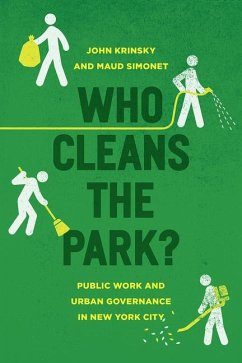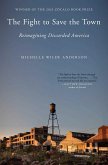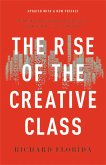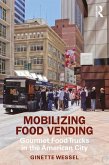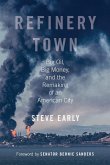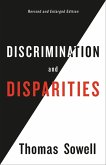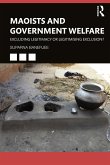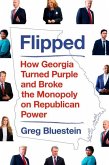American life has been increasingly privatized since the 1980s, and public parks are just one aspect of the need for help from cash-flush private interests (people like Barry Diller and Diane von Furstenberg in New York). Central Park in Manhattan has become a gleaming jewel thanks to $700 million in private investments. But there s a bigger story, one that concerns rising inequality and shrinking democracy, and Krinsky and Simonet are anxious do justice to both the parts and the whole. The empirical focus here is on public services and the conditions under which the people who work in public parks in New York deliver those services. They give us an up-close look at workers on site and of changing labor relations and contracts of the people who clean the parks. The Department of Parks and Recreation turns out to be a microcosm of New York City s governance as a whole, throwing trends in urban governing into bold relief. There is a growing body of scholarship on low-wage work, to which this book makes a signal contribution, and there is direct appeal here to scholars engaged in work, labor markets, and inequalityand that includes issues related to austerity and the local state. The authors aim to light up key debates in the sociology of work urban politics, but doing so in a way that connects with nonspecialists. As reorganizations of public work spaces lead to labor that is very low wage (or even free at times), there is need to understand public-private partnerships, and the neoliberal habits of thought which guide them. Krinsky and Simonet give us that understanding, nicely dressed in narratives about Prospect Park, Central Park, and other NYC arboreal venues."
Hinweis: Dieser Artikel kann nur an eine deutsche Lieferadresse ausgeliefert werden.
Hinweis: Dieser Artikel kann nur an eine deutsche Lieferadresse ausgeliefert werden.

